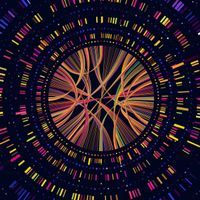ABOVE: © ISTOCK.COM, TETIANA LAZUNOVA
The ICGC/TCGA Pan-Cancer Analysis of Whole Genomes Project published 23 papers today (February 5), including several in Nature, with insights from the genomes of more than 2,600 cancers of 38 tumor types.
“This study provides the most complete picture to date of cancer-causing mutations in all parts of the genome,” Pan-Cancer steering committee member Josh Stuart of the University of California, Santa Cruz, says in a press release. “It was a massive team science effort involving researchers spanning the globe.”
“To me, the most striking finding out of all of this . . . is just how different one person’s cancer genome is from another person’s,” says steering committee member Peter Campbell of the Wellcome Sanger Institute during a press conference, Fierce Biotech reports. “We see thousands of different combinations of mutations that can cause the cancer and more than 80...
Focusing on the entire length of the genetic code, as opposed to just the coding sequences, the researchers should be able to identify cancer-driving mutations in 95 percent of patients, they say, compared with only about two-thirds of patients when relying on exome sequences.
The project, which involved 1,300 researchers from 37 countries, didn’t just yield maps of cancer-associated mutations—it also traced their history in cancer patients. Researchers at the Francis Crick Institute, for example, developed a new approach to uncover which mutations carried by tumor cells in the individual arose when, including identifying those that occurred years before the cancer manifested.
The genomic data—more than 800 terabytes’ worth—have been shared with the research community to continue combing for new clues about cancer’s inner workings. “The findings we have shared with the world today are the culmination of an unparalleled, decade-long collaboration that explored the entire cancer genome,” Pan-Cancer steering committee member Lincoln Stein of the Ontario Institute for Cancer Research, says in a press release.
In working with these data and sharing them as a resource for scientists, researchers involved in the Pan-Cancer project were conscientious about the privacy of the patients who had donated their samples. “An international code of conduct for genomic data is now crucial,” write eight of the researchers in Nature.
Jef Akst is managing editor of The Scientist. Email her at jakst@the-scientist.com.
Interested in reading more?







